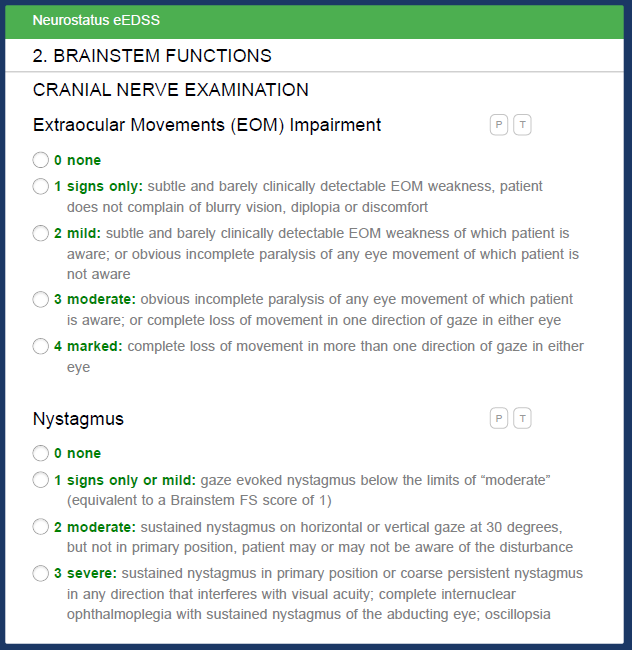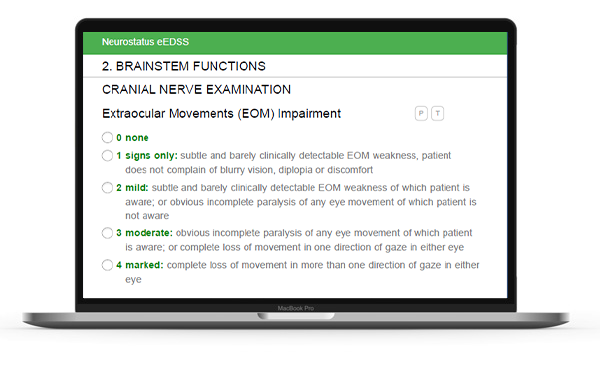New digital EDSS helps reduce inaccuracies and the administrative costs related to additional expert reviews
WCG collaborated with Neurostatus-UHB Ltd., a University Hospital Basel (UHB) subsidiary, led by CEO Marcus D’Souza, M.D., to develop an enhanced digital version of the Neurostatus-Expanded Disability Status Scale (EDSS) to capture clinical trial data.

Uniquely designed to improve a rater’s data entry experience, the system was built to advance data quality by:
- Embedding the Neurostatus proprietary scoring algorithms and edit checks, which support the rater with real-time feedback on data inconsistencies
- Developed with a web-based data review process to facilitate the quick review and oversight of data quality by the team of Neurostatus EDSS expert neurologists at Neurostatus-UHB
As a result, data entry is fast and easy, as the paper form with which the raters are familiar, is nearly identical to the paper-based form In addition, the Neurostatus Definitions booklet is embedded directly into the data capture process, so if there are questions, the rater can refer to the booklet without leaving the system.
With over 130 data points, this scale can be cumbersome to complete on paper. This new scale guides neurologists through the process, providing critical context for each question to significantly reduce inaccuracies and the administrative costs related to additional expert reviews.
Benefits of the WCG eEDSS:
- Higher-quality data, with built-in checks to keep data clean and ensure mandatory scores are completed before sign off
- Improved data accuracy and consistency with entry fields that use only valid scores
- Real-time feedback to identify scoring inconsistencies and reduce variability with inter- and intra-raters
- Help icons and details to assist EDSS raters
“This exciting new design is the type of product I would have built for myself.”
— Marcus D’Souza, M.D., CEO of Neurostatus-UHB Ltd., a University of Basel (UHB) subsidiary
